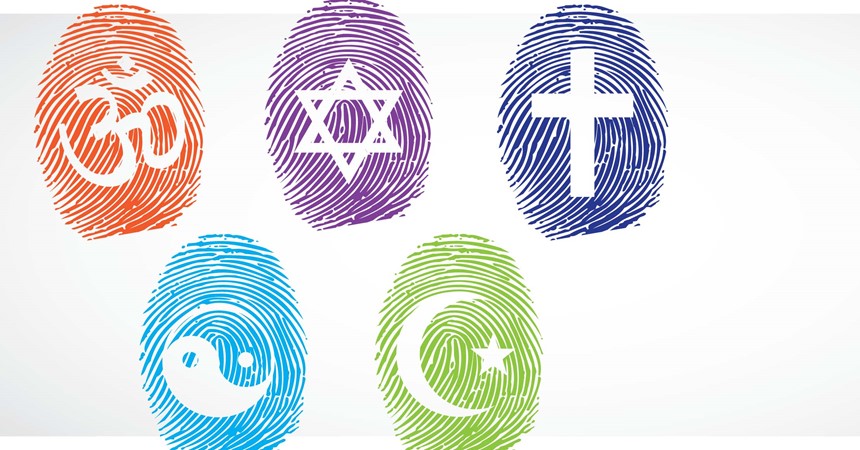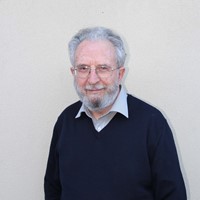This is perhaps especially the case in the so-called ‘Abrahamic’ traditions − Judaism, Christianity and Islam. All, though in different ways, are monotheistic: they inherit the powerful concept that, if it is truly God that we are talking about, then God can only be One and absolutely transcendent. Reinforced by cultural patriarchy, this would seem to be at the root of much divinely sanctioned violence, beginning with the Hebrew Bible.
In the West, such exclusivism took the form of anti-Semitism, or more accurately Christian anti-Jewishness, which some trace back to the New Testament itself. Throughout the Middle Ages this led to the ghettoization of Europe’s Jews and ultimately to the Nazi Holocaust, what Jews call the Shoah or ‘catastrophe’. Today we are faced with a new phenomenon in the West: Islamophobia, the deep antipathy to Islamist ideology as the primary motivation for terrorism, whether individually (the promise of paradise) or collectively (the prospect of reviving the Caliphate). Politicians and church leaders are quick to reassure us that this has ‘nothing to do with Islam’, properly understood, as professed by countless peace-loving Muslims.
Yet there is a sense in which Islamism does have to do with Islam, just as centuries of Christian exclusivism (Christianity is the only true and salvific faith) and supersessionism (the Church supersedes Israel in God’s plan of salvation) prepared the ground for the Holocaust. The problem is not just political but theological, and in the end only Muslims can solve it, just as only Roman Catholics could (begin to) solve the problem of their own absolutist heritage by convening the Second Vatican Council (1962-1965). For Muslims the Qur’an is the ‘inscripturation’ of the words and will of Allah, closely parallel to the Christian belief in the ‘incarnation’ of Godself in the human Jesus. Each doctrine leads to acute conceptual problems, which need to be worked on as the doctrines are continually reinterpreted in new cultural contexts.
It follows that if anyone should understand the present situation of Muslims in the West, increasingly resented as an ethnic minority with an alien cultural identity, it is Roman Catholics. Only a generation ago in Australia, Catholics too were regarded as culturally foreign and beholden to the pope’s authority. Even their democratic credentials were doubted. Muslims, for their part, can seem ill at ease in Western settings, deeply resentful of the imperialistic subjugation of their countries, afraid of the freedoms flaunted by their Western contemporaries and bound by cultural practices in clothing, diet and behaviour which for them are an integral part of their faith. How much is culture and how much is religion? Again, only Muslims can sort these questions out.
This situation, though problematic, is fraught with promise. Jews, Christians and Muslims share much more than they realise. Their most cherished prayers – al-Fatiha, the opening chapter of the Qur’an, with its invocation of God’s compassion; Shema Yisrael, ‘Hear, O Israel’ (Deuteronomy 6:4-9), which pious Jews bind on their arms and foreheads and the doorposts of their houses; the Lord’s prayer given by Jesus, the most Jewish passage in the New Testament – all share the simple but profound invocation of the One God and the command to live justly. This is surely the basis not just for an interesting comparison, but for theological collaboration in trying to fathom the meaning of this faith in the light of historical guilt for crimes of violence. A dialogue capable of raising and facing these questions without recrimination presupposes a high level of spiritual maturity. One might call it ‘deep ecumenism’: going beyond the inherited hostilities and cultural barriers to arrive together at the very bedrock of faith.
Though its inspiration is spiritual, this collaborative theology would be public and political. It could undermine the supposed ideological justification for so many fruitless stand-offs and self-justifying arguments. It could be summed up as an exercise in acknowledging the Other, welcoming the Stranger and reconciling the Enemy. This is no wishy-washy liberalism or cheap ecumenism, soft on doctrine and willing to compromise. It is the ethical core of all genuine religion.
Christian ecumenism tends to restrict itself to the well-worn theological questions stemming from the Schism with the East and the Reformation in the West. The confrontation with the world’s religions, now all present in virtually every society, forces Christians to re-examine the very foundations of their faith. Buddhism knows neither soul nor God, yet there are increasing numbers of Christians who regard themselves as both Christian and Buddhist. Like Buddhism in Sri Lanka and Myanmar, Hinduism in India is in the throes of religiously legitimated ethnic nationalism, which often issues in violence against those of other faiths. There are also the countless ‘little religions’, the traditions of Indigenous peoples which are now, too late in many cases, seen to be deeply spiritual. Exploring these relationships is the ecumenical alternative to fundamentalism and violent extremism.
Dr John D’Arcy May will visit the diocese in November.























































































